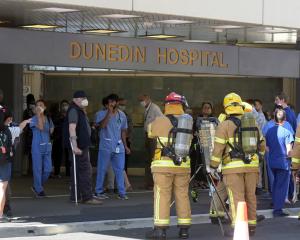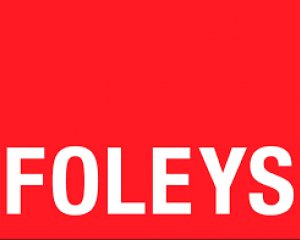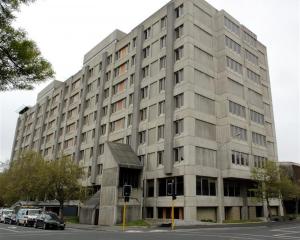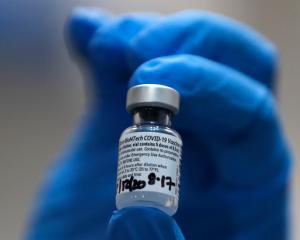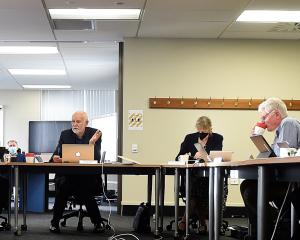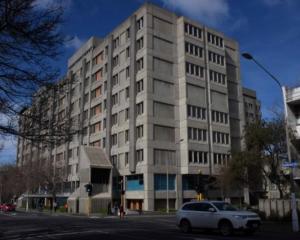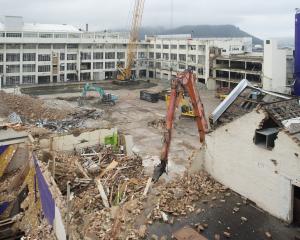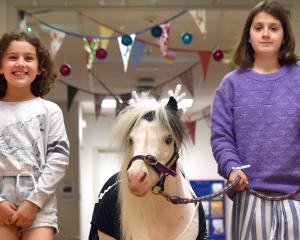While it is a move which has earned praise from Dunedin's senior doctors, yesterday in an email statement, Director-general of Health Stephen McKernan described the timing of the offers and "announcement of their employment status" as unfortunate, although acknowledging responsibility for employment decisions remained with the board.
The news of the appointments comes as the row over the future of neurosurgery services in the South heats up and senior clinicians start to speak out on the issue.
Mr McKernan said he believed there was an understanding with both Southern and Canterbury boards that no employment decisions would be made while the siting of the service was still to be determined.
He was aware Canterbury had recently employed a fourth neurosurgeon to help manage volumes.
"This appointment would have gone ahead regardless of where the service was sited."
Further questions about this went unanswered last night and Health Minister Tony Ryall declined to make any comment on a series of questions put to him.
Southern's chief medical officer, Richard Bunton, said yesterday one of the new appointments was German and the other Swedish, and both were "quite senior, experienced surgeons".
Mr Bunton said board senior clinicians were "very happy" about the appointments. The board had locum cover until the two men took up their positions.
He was hopeful that one of them might also attract a university appointment.
The board has been using locum cover, with some back-up at times from Canterbury, to provide its service since neurosurgeon Suzanne Jackson left at the beginning of last year. (When she left, the other position had been vacant for some time).
Senior Dunedin clinicians say they have no confidence in the recently announced review.
In a letter to Mr Rousseau, the clinical forum senior doctors (which include representatives from both Dunedin Hospital and the University of Otago) describe his action as "a very decisive move which will at least bring all the underlying machinations to a head and force progress based on established clinical networking principles which are gaining global recognition as to how highly specialised services should be configured".
"It will also very quickly expose the fact that this is a very political topic and as such must be vigorously fought at a political level."
Information from an Official Information Act request by the Otago Daily Times shows that Mr Rousseau approved the appointment process on June 8.
This followed his May 21 letter to Mr McKernan advising that he had two neurosurgeons on standby and he had decided he had to act immediately to appoint them or risk losing them.
He asked Mr McKernan if he intended to "activate mechanisms so as to direct the Southern DHB" to adopt the one-site in Christchurch model agreed to by the other South Island boards, "please inform me immediately".
The correspondence trail shows Mr McKernan did not respond to that letter until June 18.
Yesterday, Mr McKernan did not respond to questions on the reason for that delay.
In the June 18 letter he outlined his plans to set up an expert panel to advise him, and asking any permanent appointments of neurosurgeons be put on hold until the panel was in place.
His request came too late for Mr Rousseau .
He advised Mr McMcKernan a few days later that offers of employment had been made and said he would find out what stage they were at and seek advice about withdrawing them.
While the legal advice from board solicitors Anderson Lloyd was not provided to the newspaper, by June 29 Mr Rousseau advised Mr McKernan that the recruiting agency "confirmed that the second neurosurgeon had also already accepted the offer".
Although he requested a discussion on the matter, it appears the two did not speak until July 6 (a discussion in which National Health Board director Chai Chuah also took part).
In his letter about the discussion on July 7, Mr McKernan expressed concern that Mr Rousseau's action "on the face of it appears to pre-empt decisions around neurosurgery in Dunedin".
He also expressed concern that the neurosurgeons had not been fully informed of the full extent of the review of the services.
He suggested Mr Rousseau's actions appeared to place the candidates in an invidious position, noting the advice that one of the neurosurgeons has resigned from his current position."
He repeated his request permanent appointments not be made.
In a later email Mr Rousseau confirmed that both neurosurgeons had been made aware of the situation regarding the service review outlined in the June 18 letter from Mr McKernan.
Board chairman Errol Millar said last night appointments were always management's prerogative and were not discussed by the board.
Asked for comment on the employment situation last night, the board's crown monitor Stuart McLauchlan said he had no authority over what was done at Dunedin Hospital.
He had confidence in the independent panel which could "take the venom" out of the arguments between the two centres.
As a Dunedin resident he would like to see some service in Otago and Southland. The "fundamental thing" was service delivery which was sustainable, he said.
THE STORY SO FAR
• South Island district health boards agree there should be a regional neurosurgery service with six neurosurgeons
• June 2009: A planning report recommends a one-site model with all six neurosurgeons in Christchurch
• The then Otago and Southland district health boards do not support this, wanting two neurosurgeons in Dunedin. A further report is sought to see if consensus can be reached.
• April 2010: Consultant Ian Brown's independent report confirms there is no consensus on a one-site model. Further attempts to address differences fail.
• May 21: Southern District Health Board chief executive Brian Rousseau advises Director-general of Health Stephen McKernan he has two neurosurgeons on standby and wants to appoint them.
• June 8: Mr Rousseau gives approval to the agency recruiting the neurosurgeons.
• June 22: Mr Rousseau advises Mr McKernan offers of employment have been made.
• June 29: Mr Rousseau confirms the second neurosurgeon has accepted the offer.
• July 19: Mr McKernan announces review panel which is expected to finalise its terms of reference next week. No date appears to have been set for its report.

